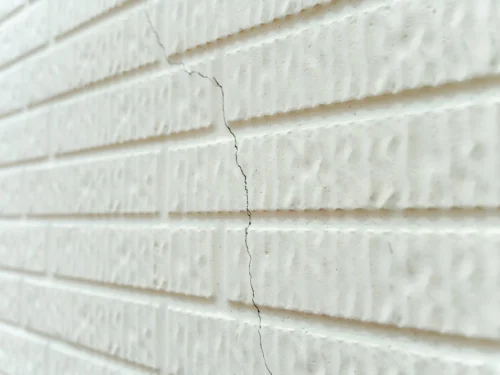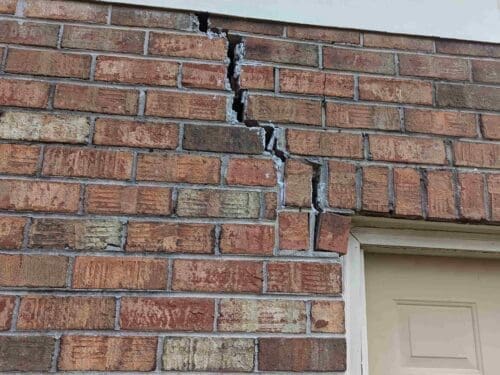Summary: Wondering if foundation repair or crawl space encapsulation requires a permit? This guide outlines when permits are legally required, how they impact safety and property value, and what homeowners should expect during the process from local regulations to potential risks of skipping permits.
Ever found a crack in your wall and instantly wondered, “Is this serious… or just settling?”
One minute you’re looking at a hairline crack. The next, you’re googling foundation repair at midnight, watching videos about crawl space moisture, and staring at phrases like “permit required” wondering what you just stepped into.
Most homeowners don’t think about their foundation until something looks off. And when they do, a wave of questions comes with it:
- “Do you need a permit for foundation repair?”
- “What if it’s just a small fix?”
- “Do I need a permit to encapsulate my crawl space too?”
- “Will the city fine me if I don’t pull one?”
Permits aren’t just red tape. And skipping them can cost more than you think especially when it comes time to sell your home or file an insurance claim.
This guide explains when a permit is required for foundation repair, how local regulations apply, and what homeowners need to know before starting any structural work.
By the end, you’ll understand the process clearly and know exactly how to move forward.
Why Permits Exist for Foundation Repair?
Permits are not just paperwork. They’re how your local city or county makes sure:
- Your home stays structurally safe
- Repairs meet building code standards
- You don’t lower your home’s value
- Future buyers (or lenders, or insurance companies) won’t raise red flags
So if you’re wondering “Does foundation repair require a permit?”
The answer often boils down to this: If the work affects the structural integrity, resale value, or safety of your home — yes, a permit is usually required.
What Counts as Foundation Repair and What Triggers a Permit
Foundation work isn’t all the same. You can’t just Google “do you need a permit for foundation repair” and expect a single answer because it depends on what kind of repair you’re doing.
In most U.S. cities and counties, permits are required for structural foundation work, especially if it involves:
- Altering foundation walls or grade beams
- Installing helical piers or foundation piers
- Reinforcing structural elements that affect load-bearing stability
- Changing anything that impacts your home’s structural integrity
These decisions are governed by your local building department, and they often require:
- A formal permit application
- Engineer-certified plans
- On-site foundation inspection
- Compliance with local building codes
The exact requirements can vary by location, but the goal is always the same: to ensure the work is safe, permitted, and properly documented.
Why Permits Matter?
When it comes to foundation repair, securing the appropriate permits isn’t just about following rules, it’s about protecting your home, your investment, and your future resale value.
- Compliance with Building Codes – Permits ensure all repairs meet local and state building codes protecting the structural integrity and long-term safety of your home.
- Verified Work and Inspections – A permit typically triggers inspections by a certified official, which confirms that the work was performed properly and safely.
- Legal Protection – Unpermitted work can result in legal repercussions, including stop-work orders, fines, or complications during property transactions. It may also impact proof of ownership compliance if structural changes go undocumented.
- Property Value Protection – Permitted repairs add to your home’s documented maintenance history, a valuable asset when selling. Buyers and appraisers look for city-permitted repairs and official documentation that shows compliance and quality.
- Record Keeping and Insurance – With a permit, your foundation repair is recorded in municipal files. This helps with insurance claims, future renovations, and ensures a smooth resale process.
- Foundation Modernization – As building codes evolve, permitted repairs ensure your foundation meets current safety standards, not outdated methods that could lead to future issues.
If those small cracks are what started your search, read this guide on why delaying foundation repairs can backfire. It puts the real risks into perspective.
Do I Need a Permit to Encapsulate My Crawl Space?
Yes, in many cases but not always. It depends on the scope of work and your local city or county regulations.
This one is tricky because crawl space encapsulation sounds simple. It’s just sealing the area under your home, right?
But, if you’re…
- Adding rigid foam or insulation
- Changing how moisture or air flows under your home
- Installing a vapor barrier AND structural components (like new piers, joist reinforcements, etc.)
… then your city or county might require a permit because improper crawl space work can lead to:
- Moisture buildup and mold
- Structural rot
- Ventilation code violations
Some municipalities consider this a structural or HVAC-related alteration.
It’s always best to check with your local code enforcement office or building department before assuming a permit isn’t needed. A good contractor should know or better yet, pull the permit for you.
If you’re budgeting for this type of work, it’s also important to understand crawl space repair costs before hiring a professional, permits are only part of the picture.
Do You Need a Permit for Foundation Repair in Your Area?
Yes, if:
- Structural components are being added, replaced, or reinforced
- You’re installing support piers or wall anchors
- Work affects the foundation footprint or floor system
- Your municipality classifies it as “structural alteration”
No, if:
- You’re doing cosmetic crack patching
- Minor waterproofing or drainage that doesn’t affect structure
- You’re not touching framing, foundation walls, or structural supports
But remember, permit requirements vary by city and are based on the specific scope of work.
Some examples:
- Houston, TX: Requires permits for any foundation work. Needs engineered plans for piers.
- Charlotte, NC: Requires permits and inspections for all underpinning and foundation lifts.
- Los Angeles, CA: Requires permits for both foundation AND crawl space structural work.
So, the answer to “does foundation repair require a permit?” varies by ZIP code. So always verify with your city or building department.
Who’s Responsible for Securing the Permit?
One of the most common homeowner questions is: “Am I responsible for pulling the permit, or will the contractor do it?”
Here’s the short answer: It depends on your agreement but the contractor is usually responsible.
Most reputable foundation repair contractors will:
- Handle the permit process
- Coordinate with the building department
- Submit construction documents
- Schedule required inspections
That said, you, as the homeowner, are ultimately responsible for ensuring the work is permitted if required. If something goes wrong and there’s no permit in place, it can lead to:
- Problems with disclosures during resale
- Issues with your local building authority
- Delays in passing final inspection
- Potential violations of local regulations
Always verify that your contractor is licensed and familiar with local permit requirements.
At Virginia Foundation Solutions, we handle the permitting process for our customers. We coordinate with the building department, submit construction documents, and schedule required inspections, when a permit is needed.
However, not all projects require a permit. It depends on the scope of work and your local city or county’s regulations.
How Long Does It Take to Get a Foundation Repair Permit?
That depends on your city and the type of repair. But here’s a rough range:
| Project Type | Typical Permit Time |
| Minor structural repair | 1–3 days (simple filing) |
| Major underpinning/wall systems | 1–2 weeks |
| Crawl space encapsulation (with framing) | 1–3 weeks |
| Full foundation replacement | 2–6 weeks (includes engineering and inspections) |
Some cities require engineer drawings or soil reports for permit approval which can stretch the timeline.
How Virginia Foundation Solutions Handles the Permit Process
At Virginia Foundation Solutions, we simplify the permitting process for you. Our team is experienced in navigating the unique building regulations across Coastal Virginia and North Carolina, and we manage every step from determining whether a permit is needed to securing approvals and coordinating inspections.
Here’s what you can expect from us:
- We assess your project to determine if a permit is required based on local code and the scope of work.
- We handle all permit applications and documentation with your city or county.
- We coordinate with building officials to ensure timely inspections and compliance.
- We keep you informed at every stage, so there are no surprises or delays.
You don’t have to worry about paperwork, fees, or missing a step. We take care of the permitting process so you can focus on getting your home safely and properly repaired with full confidence that everything is done by the book.
Why Permits Are Actually a Good Thing
Yes, they cost money. Yes, they take time. But here’s why pulling a permit is worth it:
- Protects your home’s resale value – Non-permitted work can kill a sale or lower your appraisal.
- Keep your insurance valid – Some insurers won’t cover damage tied to unpermitted repairs.
- Holds contractors accountable – Work must pass inspection, no shortcuts or shady workmanship.
- Gives you peace of mind – You’ll have official records showing the repair was done right.
So even if you could skip it, ask yourself: Why would you?
Final Thoughts
Managing foundation repairs can be complex especially when permitting requirements, inspections, and local regulations come into play. It’s understandable that many homeowners feel uncertain about where to begin.
Here’s what matters most:
- Yes, a permit is typically required for structural foundation repair.
- Yes, crawl space encapsulation may also require a permit depending on the scope of work and local code.
- And no, this isn’t just bureaucracy. It’s an essential step to ensure the work is safe, code-compliant, and protects the long-term value of your home.
At Virginia Foundation Solutions, we proudly serve homeowners across Coastal Virginia and North Carolina. We handle the permitting process when needed including inspections and repair planning, so you don’t have to manage it alone.
Contact us to schedule a consultation or get clear answers about your next steps.
Whether you’re planning ahead or responding to an urgent issue, we’re here to make the process easier, safer, and more transparent, every step of the way.
Frequently Asked Questions
1. Do all types of foundation repairs require a permit?
Not all foundation repairs require a permit. Generally, minor cosmetic repairs like sealing small cracks or minor waterproofing, don’t need one. However, if the work affects the structural integrity of your home (such as installing support piers, underpinning, wall anchors, or replacing beams), a permit is almost always required. Always check with your local building department to confirm what’s necessary for your specific project.
2. Who is responsible for obtaining the permit, the homeowner or the contractor?
Typically, your foundation repair contractor should obtain the necessary permits on your behalf. Reputable contractors are familiar with local codes and the permitting process. However, as the homeowner, you’re ultimately responsible for ensuring all permits are in place before work begins. Don’t hesitate to ask your contractor for proof of permit before the project starts.
3. What happens if I skip the permit for foundation repair?
Skipping the permit can lead to serious consequences. You may face fines, mandatory removal or redo of unpermitted work, delays in selling your home, or even issues with insurance claims. Unpermitted repairs can also lower your property value and cause problems during home inspections or appraisals.
4. How can I find out if my city or county requires a permit for my foundation repair?
The best way is to contact your local building department or visit their website. Permit requirements vary widely by location, and some cities have online resources or permit portals that make it easy to check. You can also ask your contractor, but it’s smart to verify requirements yourself for peace of mind.
5. Does getting a permit guarantee that the repair work will be high quality?
A permit requires your project to meet local building codes and pass inspections, which helps ensure the work is done safely and correctly. However, it’s still important to hire a reputable, experienced contractor. Permits and inspections are safeguards, but contractor skill and attention to detail matter, too.
6. How long does the inspection process take after the repair is completed?
Inspection timelines vary by city and the complexity of the repair. For minor repairs, inspections may be completed within a day or two after the work is finished. More extensive structural repairs may require multiple inspections at different stages, which can extend the process to several days or weeks.
7. Will having a permit for foundation repair help when I sell my home?
Absolutely. Permitted and inspected repairs provide documentation that the work was done to code and approved by local authorities. This reassures buyers, helps maintain or increase your home’s value, and prevents headaches during the sales process. Unpermitted repairs can raise red flags and potentially derail a sale.









